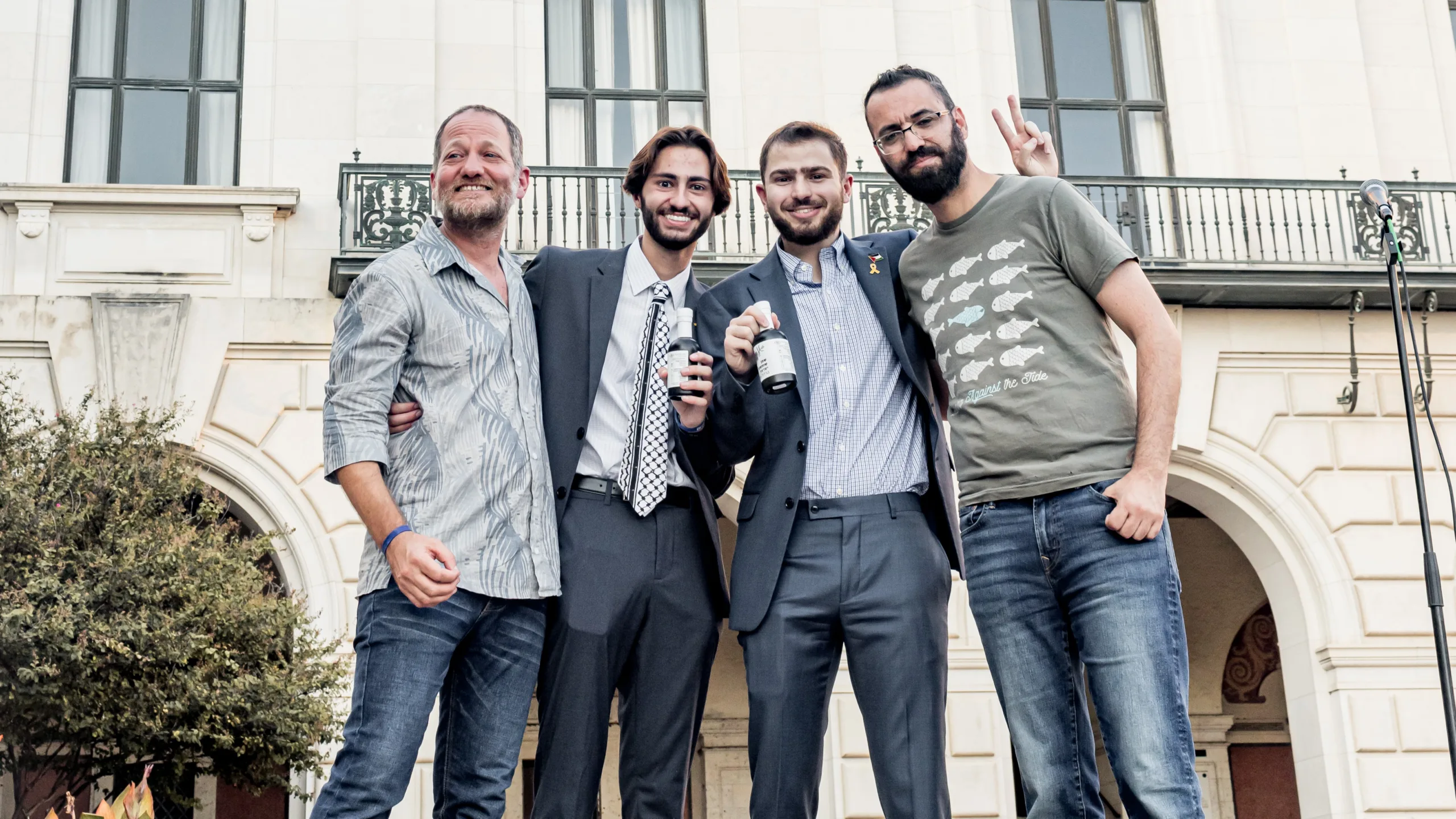In a world gripped by war, division and rising hate, one young Jewish-Greek peacebuilder is walking a radically different path – one rooted in empathy, shared humanity and the stubborn pursuit of peace.
At just 22, Elijah Demetrius Kahlenberg is the founder of Atidna International, a student-led organisation that brings Jewish and Arab, Israeli and Palestinian students into dialogue on some of the most polarising issues of our time.
Born into a family shaped by both Holocaust survival and Greek resistance to fascism, Elijah’s work is deeply personal – and urgently relevant.
As the war between Israel and Hamas rages on, with devastating humanitarian consequences in Gaza and a sharp rise in antisemitism and Islamophobia globally, campuses and communities across the world have become battlegrounds of identity and ideology. Elijah, however, is fighting for a shared future between two peoples.
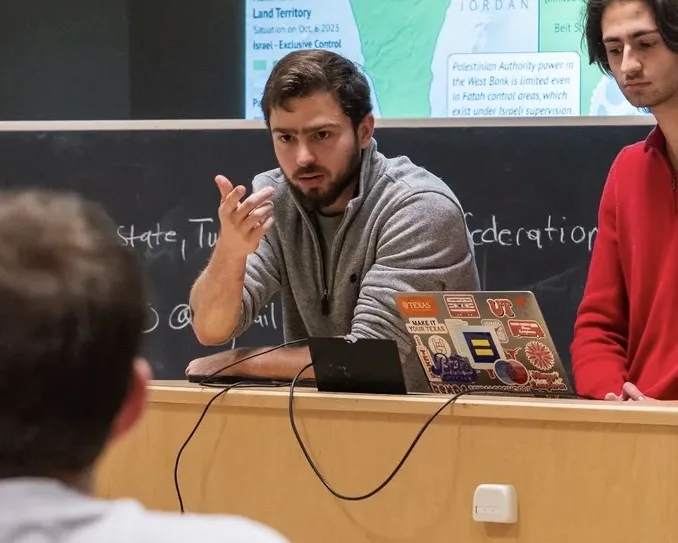
A moment that changed everything
Atidna – meaning our future in a blend of Hebrew and Arabic – began with a conversation. Not a political argument or an ideological debate, but a moment of human connection.
“The story of Atidna is indispensably tied to my personal story,” Elijah tells The Greek Herald.
“Growing up in normative Jewish institutions, my only exposure to the Palestinian narrative was not from actual Palestinians, but rather from people who typically held negative or even outright racist sentiments against them.”
That changed in his teenage years when he met Ahmed – a young Palestinian wearing a keffiyeh.
“I correctly assumed he was Palestinian… I started off our first conversation by complimenting his keffiyeh. He told me it was his grandfather’s. I then remarked that the way he wore it heavily resembled, in style and appearance, a tallit — the Jewish prayer shawl. That moment sparked an hours-long conversation about our two cultures,” Elijah says.
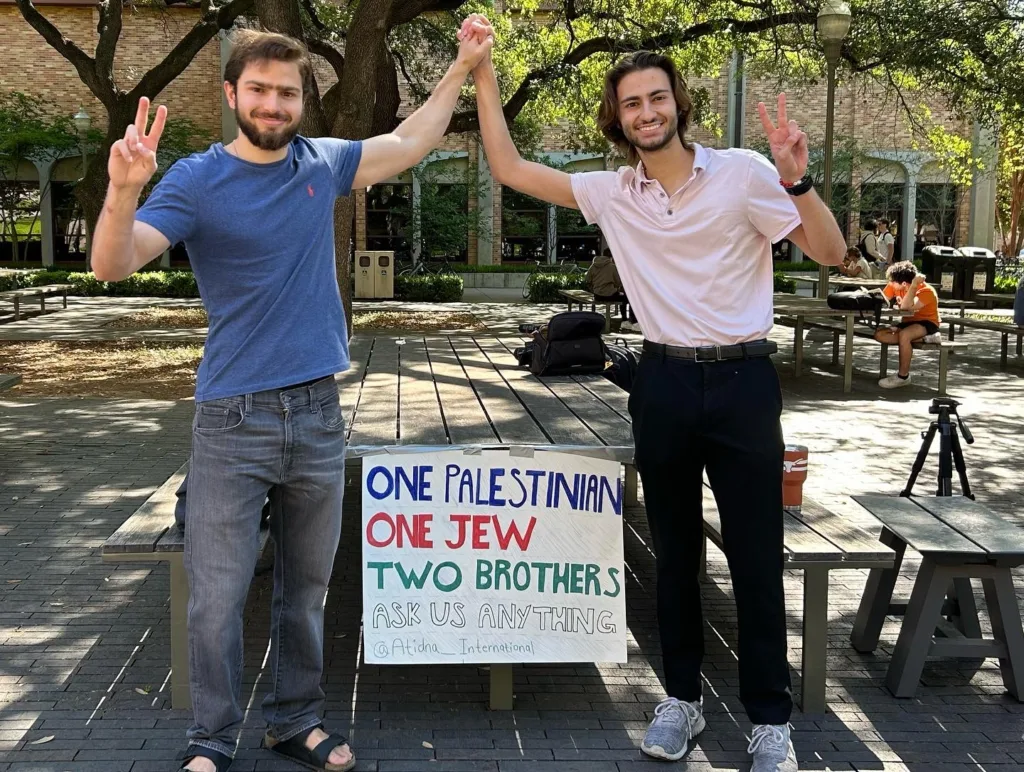
The impact of that conversation was profound: “By the end of it, we both came away with the conclusion that we were not ‘others’ but brothers.”
It was this deeply personal experience that planted the seed for what would eventually become Atidna.
“Ahmed and I were not unique. I was convinced that if our two communities could simply have civil and joint conversations like we did, the familial bond underpinning our relationship could be revealed to redefine our communities’ connection from one based on dehumanisation to unity,” Elijah says.
A divided campus, a unifying mission
When Elijah began studying at the University of Texas, he encountered a stark and painful reality.
“I quickly learned no space existed on campus for Jews, Arabs, Israelis, and Palestinians to even meet, let alone talk, with the so-called ‘other’,” he says.
“One of my earliest and most despondent memories as a Freshman was entering my first Middle East Studies class and seeing Jewish students and Arab students self-segregating to opposite sides of the classroom. This was sadly normative across America.”
That moment became the catalyst for action. In 2022, Elijah founded Atidna as a non-profit organisation with two core goals: “Firstly, to solidify through peace events on campuses that Jews and Arabs are cousins, one family, and not inherent enemies. Secondly, to bring together both peoples through dialogue sessions on campus to have joint and civil conversations about anything and everything pertaining to Israel and Palestine.”
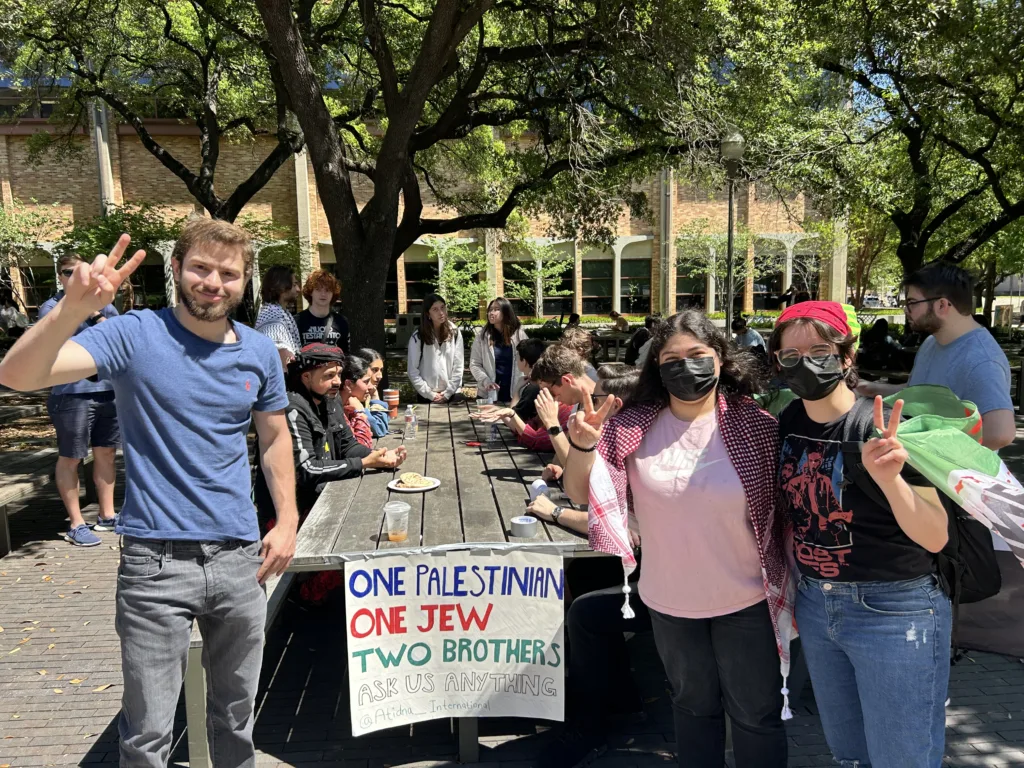
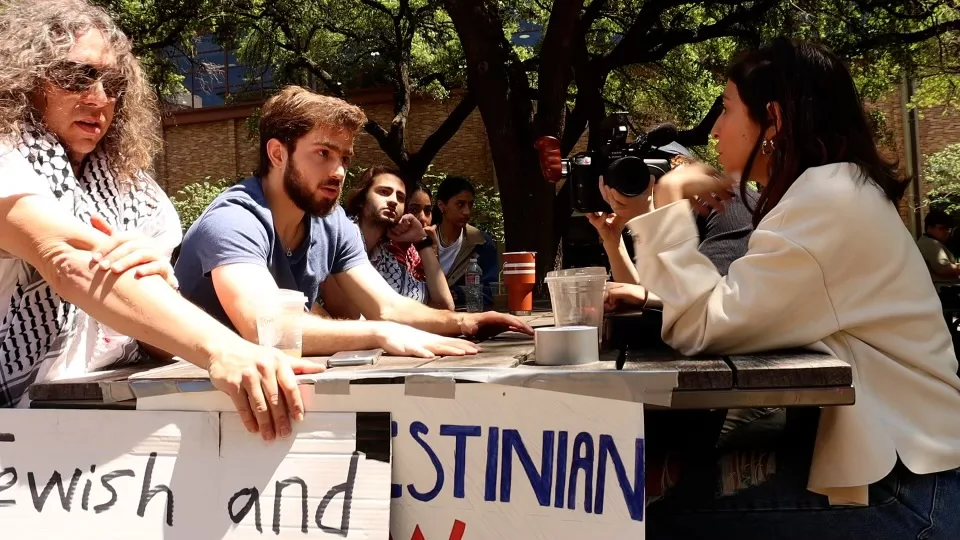
Since then, Atidna has grown rapidly, with chapters across ten university campuses and hundreds of students involved in dialogue, events and community-building.
“Atidna is the first and only student-led initiative on American campuses dedicated to bringing together our two peoples in dialogue on this divisive issue,” Elijah says.
A legacy of survival and resistance
Elijah’s activism is not only political, but ancestral. His identity is shaped by generations of survival and resistance.
“While my father’s Ukrainian and Polish Jewish family had many members who perished at the hands of the Nazis in concentration camps, my mother’s side holds stories of directly fighting and opposing Nazi oppression. My mother’s grandfather, who was of mixed Greek-Jewish and Greek-gentile ancestry, fought for the Greek resistance against Nazi occupation and racism,” Elijah explains.
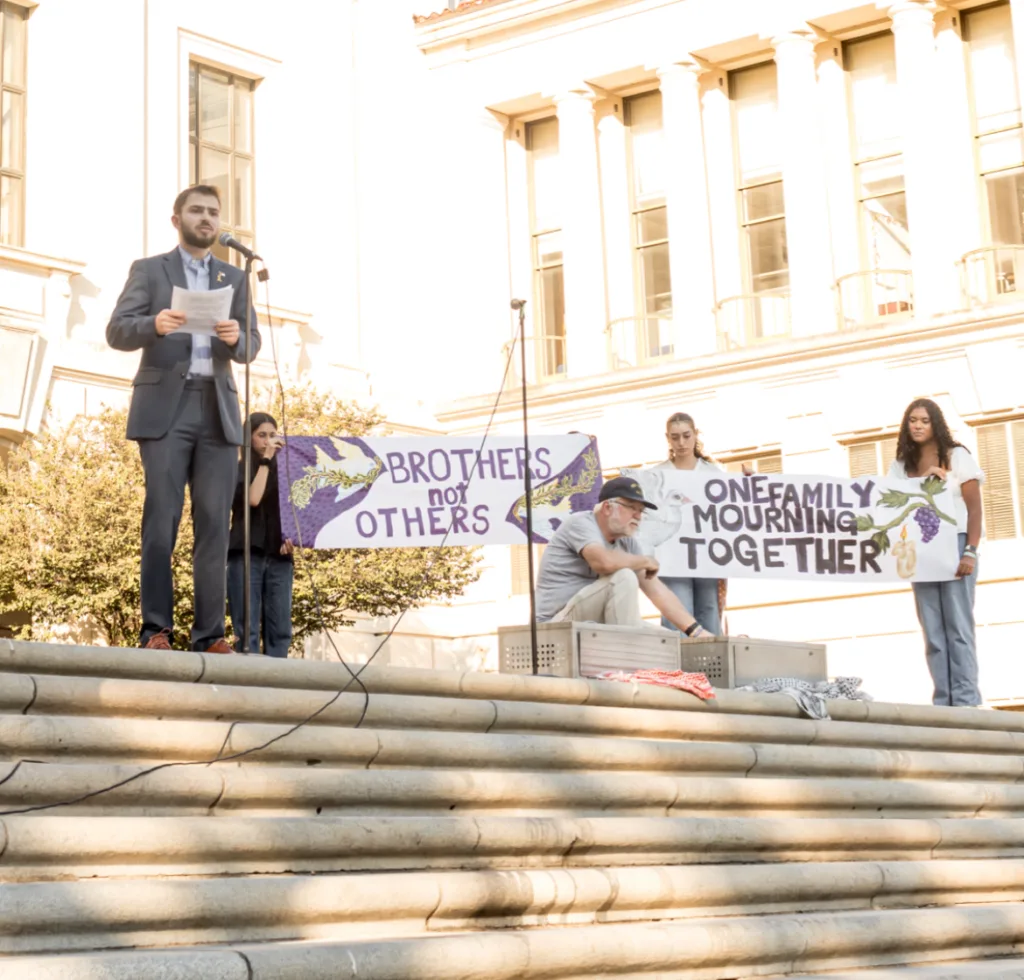
These intertwined histories give Elijah a moral compass and a deep sense of purpose.
“These stories taught me that we have to both acknowledge one’s pain, trauma, and suffering while simultaneously fighting for a just and equal future. As a Greek Jew, I feel an ancestral obligation to fight for the oppressed in any context, especially my Palestinian brothers and sisters who now suffer under occupation,” he says.
“Just as my ancestors strove for equality and fought against injustices, I hope to continue their legacy through my efforts in joint dialogue and peace activism.”
Facing hostility with hope
Dialogue, however, does not come easily. Atidna has faced opposition from both Zionist and anti-Zionist student groups.
“At our UT chapter, both the primary Israeli and Palestinian student groups sent out messages to their members to not participate in Atidna’s dialogues due to issues of ‘being a possible platform for students to justify terrorism’ and ‘promoting normalisation’ respectively,” Elijah says.
Yet Atidna has persevered. “Despite disagreements being prevalent in Atidna spaces, most Jewish and Arab students come away from these conversations with many more understandings of commonalities and agreements between our two peoples than they previously imagined.”
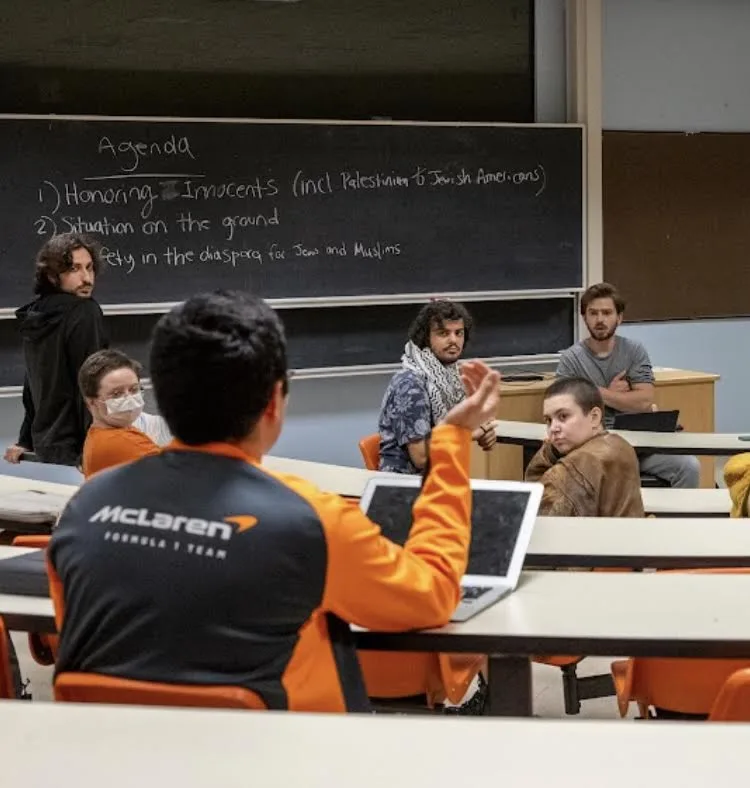
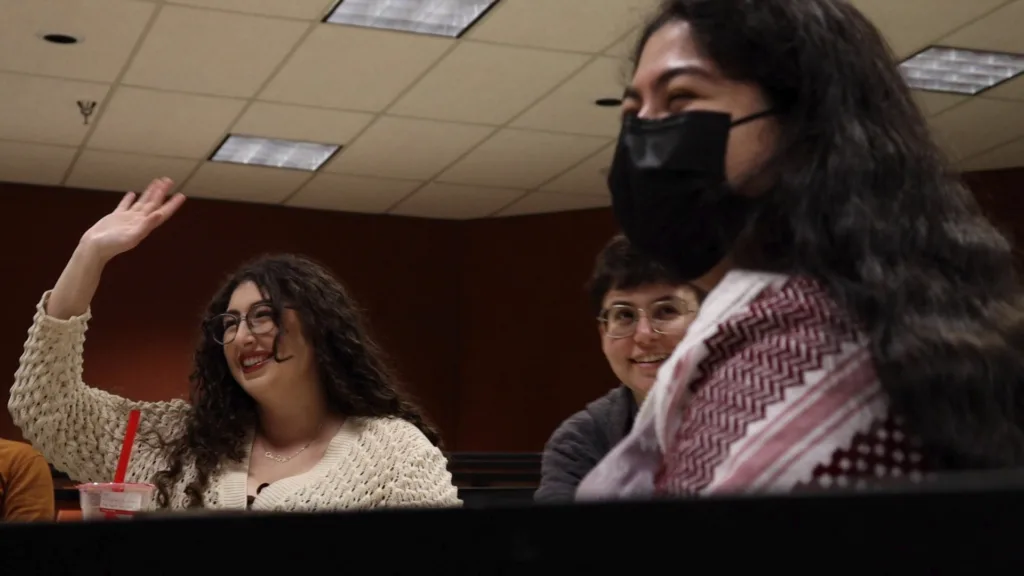
The challenge grew more intense after the October 7 Hamas attack on Israel and the subsequent war in Gaza.
“After Oct 7th, both groups were more polarised than ever before on campuses. Sadly, some students in the Atidna sphere expressed that they no longer believed in peace and dialogue work at such a tense time. We even had Jewish and Arab officers resign from Atidna under the pretense they wanted to only focus on in-group activities for mourning and protesting,” Elijah says.
But rather than falter, Atidna expanded. “Our work grew immensely as many more Jewish and Arab students across the country gravitated to our initiatives by recognising that now more than ever, when blood, anger, and division are at their peak, is when we need to find solutions together.”
Seeds of change in the West Bank
In 2022, Elijah took his peace efforts to the heart of the conflict: the West Bank. There, he joined Roots, a unique initiative operating out of a shared space called Merkaz Karama – the Dignity Centre.
“Roots is the only West Bank-based organisation attempting to unify Palestinians and Israelis in the heart of the conflict through peace-building initiatives,” Elijah explains.
His most memorable experience? Leading Roots’ youth summer camp.
“This camp brings together 80 Israeli and Palestinian children for a week of fun and understanding the ‘other.’ I actually spent the week leading up to the camp single-handedly creating the first and only joint Jewish and Arab basketball court for the kids,” Elijah says.
“Basketball was a complete success at the camp and it generated immense personal satisfaction and hope seeing Israeli and Palestinian children bond through my favourite sport.”
Grassroots first, politics later
Elijah is part of a generation disillusioned with failed peace accords.
“I was born in 2002 and part of a generation raised amid the failures of the Oslo Accords,” he says.
“Many in my generation, especially the youth in Israel and Palestine, have become hopeless and radicalised as they have only seen destruction, death, and vitriol since their birth with no true outlet for peace.”
He argues that peace must begin from the bottom up. “A top-down peace resolution can only successfully and sustainably come about once a grassroots, bottom-up approach to peace is made the focus of Israeli-Palestinian relations.”
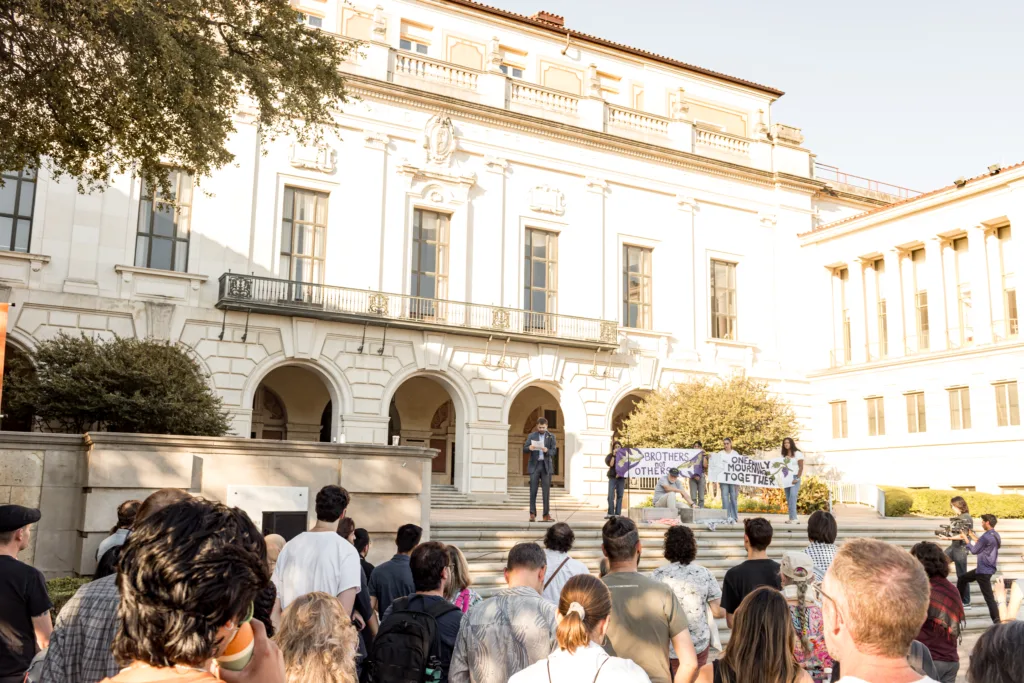
And division, he insists, cannot be the answer.
“Any solution predicated on division is doomed to fail from the start. Oslo, in its conception of ‘two states for two peoples,’ was guilty of this. Both peoples possess the inherent desire to access the entire land,” Elijah says.
He believes a shared future is the only way forward. “Without, at minimum, a solution predicated on freedom of movement, right of return, and equality for both peoples… a peaceful resolution will never be actualised.”
Diaspora youth must lead
Elijah places particular hope and responsibility on young people in the diaspora.
“Our generation will likely prove to be arguably the most important in the history of Israeli-Palestinian relations,” he says.
“Students, especially Jewish and Palestinian students in the diaspora who have the luxury of being removed from such daily violence, have a responsibility to have the tough conversations needed for ending the unholy evils plaguing our two peoples and working towards a joint future predicated on equality, freedom, liberty, and justice.”
His message to students? “Reach out your hand to the ‘other.’ Embodying the courage to reach out the olive branch to start a conversation is the first step to ending this dark and death-filled nightmare.”
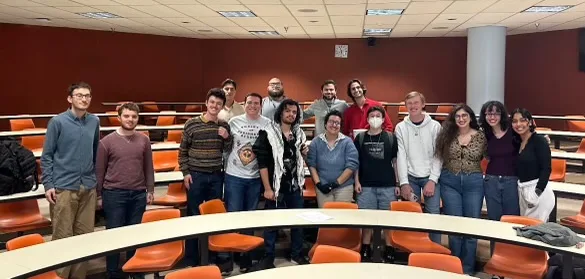
Thessaloniki and the ethics of memory
Elijah’s Greek heritage continues to be a vital source of strength and inspiration. He looks to Thessaloniki – once home to a thriving Jewish community – as a model of pluralism and solidarity.
“Salonika, as it is called by Greek Jews, was a locality where a variety of ethnicities and languages could be heard on every other street corner,” he says. “It was a land of cosmopolitan tolerance.”
He recalls Archbishop Damaskinos, the head of the Orthodox Church of Greece during WWII, who defied Nazi orders.
“He publicly urged Greeks to hide Jews and used the church to issue falsified records to protect them from deportation,” Elijah says.
That legacy lives on in Elijah’s work. “My Greek and Jewish backgrounds undoubtedly instilled within me a sense of justice, empathy, and a desire for equality, just as my predecessors strove for.”
The courage to continue
As the bloodshed continues and division deepens, Elijah is clear about what peace demands: courage, persistence, and love.
“If we are guided by hate then we will all be blind; but if we are guided by love, then we can all see a bright future to work for together,” he says.
In the face of a conflict too often framed by fear and fatalism, Elijah is offering a different story – one in which the future is shared, the path is difficult, and peace is worth every step.
